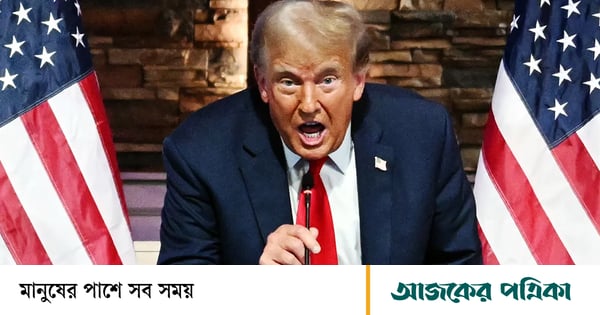Donald Trump is going to take the responsibility of the President of the United States for the second term. He said that he will impose large tariffs on Canada, Mexico and China on the first day of taking office. According to Trump, these tariffs will help stop illegal immigration and drug trafficking in the United States.
On Monday, Trump said that he will impose a 25 percent tariff on all products from Mexico and Canada in an executive order after taking the oath on January 20. An additional 10 percent tariff will be imposed on China until it stops trafficking the synthetic opioid fentanyl.
This drug, called fentanyl, is commonly used as a medical pain reliever. It is 50 to 100 times more potent than morphine or heroin, and its overdose or abuse is extremely dangerous.
The US administration estimates that 75,000 people died from fentanyl overdoses last year. For this reason, the Biden administration has been pressuring Beijing to stop the production of raw materials for fentanyl.
Trump said in a post on his Truth social platform that Mexico and Canada would withdraw additional tariffs if they crack down on drugs like fentanyl and immigrants crossing the border illegally.
He also said that Mexico and Canada have the right and ability to easily solve this long-standing problem. But now they have to pay a huge price. Trump also said that he will take action against the 'open border' policy.
In a separate post directed at Beijing, Trump said Chinese officials had failed to follow through on their promise to execute people caught smuggling fentanyl.
In response, a spokesperson for the Chinese embassy in Washington told the BBC, 'The idea that China is knowingly allowing fentanyl to be smuggled into the United States is completely contrary to the truth and reality. China believes that China-US economic and trade cooperation is mutually beneficial. No one will win a trade or tariff war.'
During the election campaign, Trump threatened to impose tariffs of up to 100% on Mexico and China if necessary. In addition, he said, China is the most-favored nation from the United States in terms of tariffs and other restrictions. He will not keep this special advantage of China.
After Trump threatened the tariffs during the election campaign, many economists warned that the tariffs would hurt US economic growth and increase inflation. This duty is mainly paid by importers. Therefore, the additional cost due to the imposition of tariffs will increase the price of the product.
Those close to Trump, meanwhile, claim the tariffs will help importers negotiate more favorable trade deals and push for manufacturing jobs that have moved overseas to come back to the United States.
According to a model by Bloomberg Economics, Trump's proposed tariffs would reduce imports from China to the United States by about 50 percent and U.S. imports to China by about 90 percent. That means there will be almost no trade between the two countries.
Even if China or other countries do not retaliate, US exports to those countries will drop by about 40 percent. Tariffs on imports would raise the price of foreign goods in the domestic market, while making U.S. goods less competitive in export markets. If other countries retaliated, U.S. exports would drop by about 60 percent. If imports and exports fall together, the US trade deficit will remain the same.

